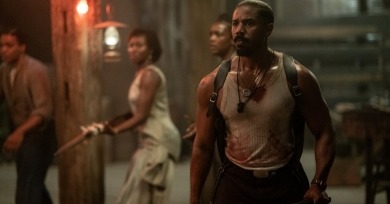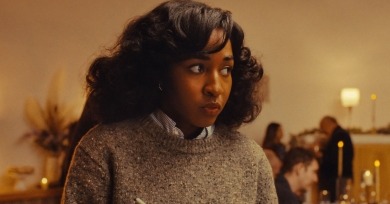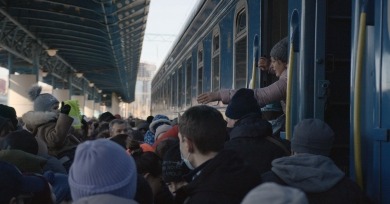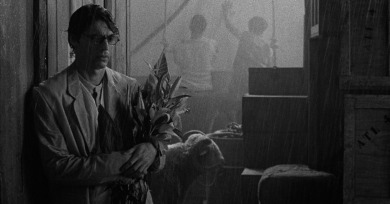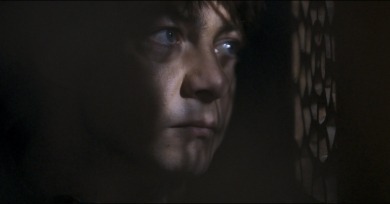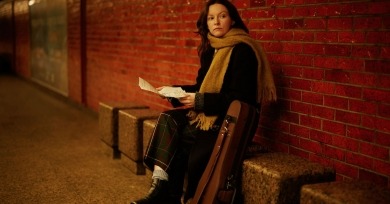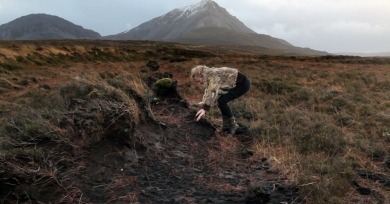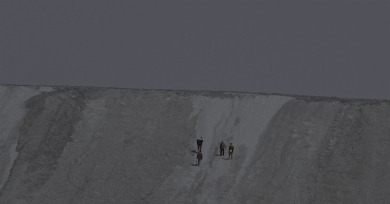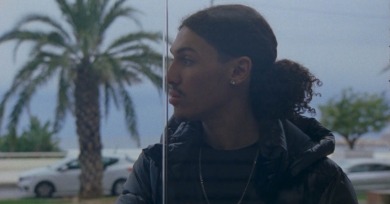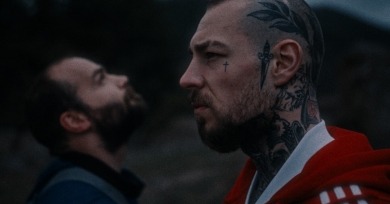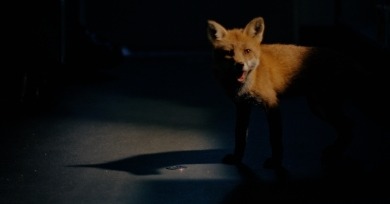Reviews
If the vampire lore in Sinners does not quite cohere, a more compelling pattern unfolds. Coogler seems to recycle a premise he first staged in Black Panther: that no one who embraces the American project may escape its grotesque transformations.
Tensions between an old and new guard of writers feature in Opus, which twists the Almost Famous concept of a writer going on the road with enigmatic musicians into a horror-comedy embittered about the state of relations between artists and critics.
The result is less a collective narrative of the ongoing war than a collage of impressions and feelings that guide the viewer across geographical terrain and reveal a country’s citizens processing their trauma in wildly different ways.
For a tale of doomed love and excruciating loneliness, the sixth feature from Miguel Gomes is not powered by sorrow so much as an inordinate fondness for the world, a film where director and characters alike seem determined to find beauty in the most unexpected places.
The intention here was to make an erotic film without relying on or showing sexual acts. That was something I told myself from the very beginning: no one will make love this time.
The aesthetic looseness feels like an appropriate evocation of the anything-goes sensibility of childhood, as well as the pedagogical nature of the educational milieu.
Though Measures of a Funeral is a lushly photographed, globe-trotting saga that runs nearly two and a half hours, its bones are that of an essay film.
The more personal A Want in Her gets, the less it feels like a document constructed with a prospective viewer in mind, and so the result is edifying and intrusive in equal measure.
The film is an object that unfurls a bit like a complex piece of classical music. Zhao introduces forms and motifs in order to stretch them to the limits of intelligibility. Before you’re even aware of it, Periphery has already moved on to some other idea.
A vague pre-apocalyptic tension courses through the docu-style footage of Monaco at night, where sparkling lights only serve to highlight the desolation, as well as the cavernous yet claustrophobic domestic interiors, which feel like they are on the verge of swallowing inhabitants whole.
All we see, throughout the 72 minutes of A Frown Gone Mad, are bloody faces and the back of Bouba’s arm administering the shots. But the specter of war and death in the Lebanese capital hovers like a shroud.
The film asks its audience to question the very nature of narratives, of artifice, of truth, fiction, and the mechanisms artists use to achieve their ends.
Windless is rigorously pictorial with centrally composed shots and the linear perspective of Renaissance art, where the relative size, shape, and position of objects is organized around imagined lines converging at a point on the horizon. But even though the film upholds those conventions, it also makes room for the character to resist or break them.
His films occlude the presence of human labor and consumption. Instead, he spotlights the empty, spaceship-like labs and warehouses where meat of all kinds is processed or artificially created before it is packaged by automated robots and sent off to supermarkets.
